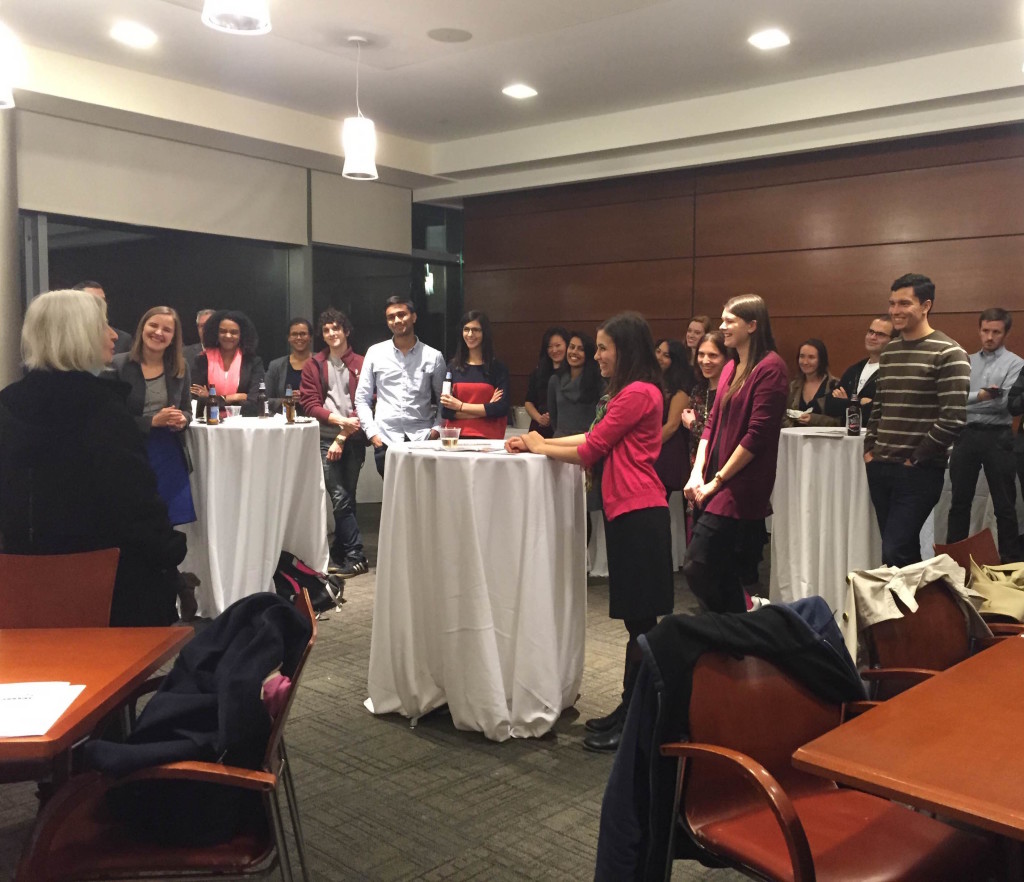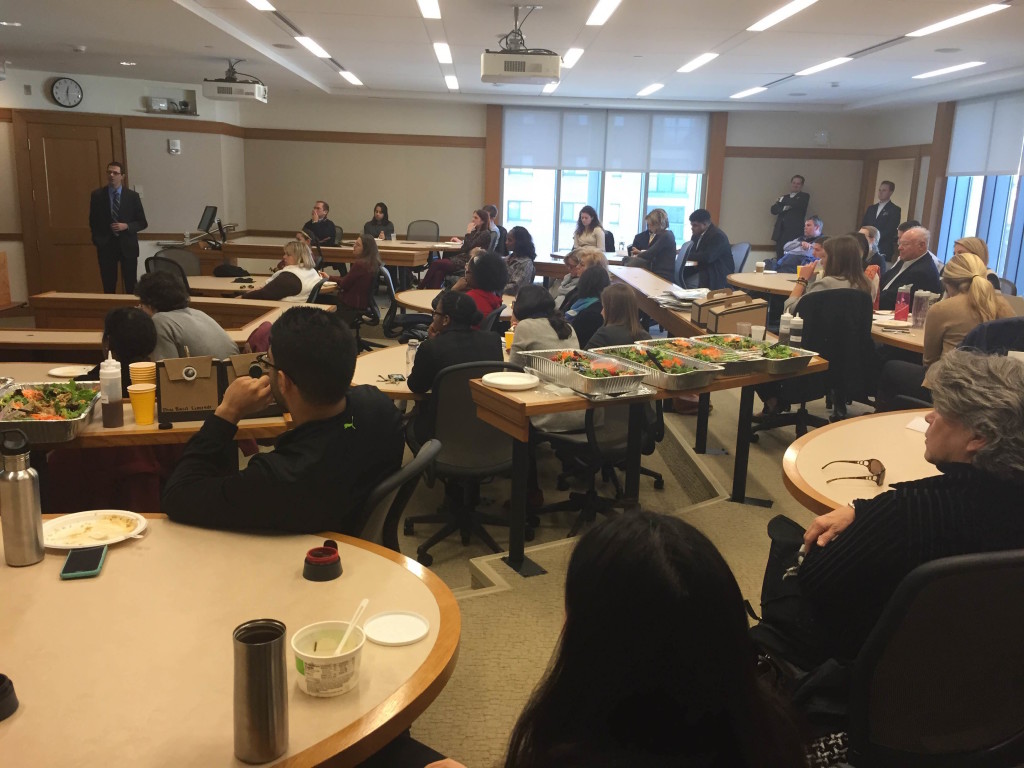By Colin Ross, Harvard Mississippi Delta Project Co-Chair, HLS ‘16
 On the evening of November 18th, the students and faculty of the Harvard University community came together for the 7th annual Delta Celebration—a chance to share appreciation for the beauty and culture of the region, and to exchange insights about ways to help confront its challenges. Students and faculty of the Harvard Law School and School of Public Health were joined by special guest speaker Professor John Green, the Director of the Center on Population Studies at the University of Mississippi. HLS Dean Martha Minow also took the time to attend and give remarks.
On the evening of November 18th, the students and faculty of the Harvard University community came together for the 7th annual Delta Celebration—a chance to share appreciation for the beauty and culture of the region, and to exchange insights about ways to help confront its challenges. Students and faculty of the Harvard Law School and School of Public Health were joined by special guest speaker Professor John Green, the Director of the Center on Population Studies at the University of Mississippi. HLS Dean Martha Minow also took the time to attend and give remarks.
The Delta region continues to face a range of economic, social, and health challenges, from poverty to obesity to unemployment. Since its inception, the Food Law and Policy Clinic has been committed to helping address these challenges, including supervising the student practice organization, the Harvard Mississippi Delta Project. At the event, the leaders of the Delta Project presented about their team’s efforts to study and address these challenges for clients in Mississippi. These include:
- The Food Policy Initiative is working to get healthier, local food into Mississippi’s schools. The team members are working with the state’s burgeoning farm-to-school network to study what policies could further support the growth of farm to school programs in Mississippi;
- The Health Initiative is doing advocacy work to support a bill in the Mississippi legislature to encourage breast-feeding, and spread the health and economic benefits the practice brings;
- The Economic Development Initiative is studying the ways grant funding works in the region and how it might be streamlined; and
- The Child & Youth Initiative is tackling a delicate but critical issue: the obstacles to contraceptive access in Mississippi and how reducing them could end the state’s high rates of teen pregnancy and sexually transmitted diseases.
Dean Minow praised these efforts and the overall commitment to the Delta as a concrete example of students carrying out the HLS mission to advance justice in society.
Harvard’s ties to the Delta region extend far beyond Cambridge: two fellows, one each from the law and public health schools, live and work in Mississippi for two year terms. HLS Fellow Desta Reff and HSPH Fellow Maya McDoom gave a glimpse into the crucial work they do to connect the policy research students do in Massachusetts to the needs of government and non-profit organizations on the ground in the Delta.
Earlier that day, Professor Green delivered a lunch presentation about innovative methods to undo the confluence of bad trends that lead to negative maternal and child health outcomes in the Delta. By a happy coincidence, a group of Delta region leaders was in town for the Delta Leadership Institute at the Harvard Kennedy School, and the audience swelled as these leaders joined students to hear Professor Green’s remarks.
 In his concluding remarks, Green first described his reaction years ago when he first heard of Harvard’s new public policy efforts to help the Delta region. “Poverty tourism!” he recalls angrily accusing the Harvard representative. Green said his initial skepticism was borne of his general reluctance to trust ivory tower, feel-good intentions over hard data. But this year, Green made the trek up to Cambridge for the Celebration because he’s been incredibly impressed with Harvard’s community-responsive process and the results Harvard has helped produce. Data has clearly shown that Harvard’s policy efforts can and do help improve realities in the Delta, he said.
In his concluding remarks, Green first described his reaction years ago when he first heard of Harvard’s new public policy efforts to help the Delta region. “Poverty tourism!” he recalls angrily accusing the Harvard representative. Green said his initial skepticism was borne of his general reluctance to trust ivory tower, feel-good intentions over hard data. But this year, Green made the trek up to Cambridge for the Celebration because he’s been incredibly impressed with Harvard’s community-responsive process and the results Harvard has helped produce. Data has clearly shown that Harvard’s policy efforts can and do help improve realities in the Delta, he said.
After the speakers had finished, the assembled crowd of about 50 continued to mingle and network, strengthening the personal connections that will invigorate this important work and facilitate new collaborations and projects to continue contributing to positive change in the Delta region.
To stay up to date on our work in the Delta Region and FLPC’s other projects, follow us on Facebook and twitter.
————–
The views reflected in this blog are those of the individual authors and do not necessarily represent those of the Center for Health Law & Policy Innovation or Harvard Law School. This blog is solely informational in nature, and not intended as a substitute for competent legal advice from a licensed and retained attorney in your state or country.


Health Law & Policy, Commentary
Braidwood Management v. Becerra: Updated FAQs for Health Advocates and Providers
July 22, 2024